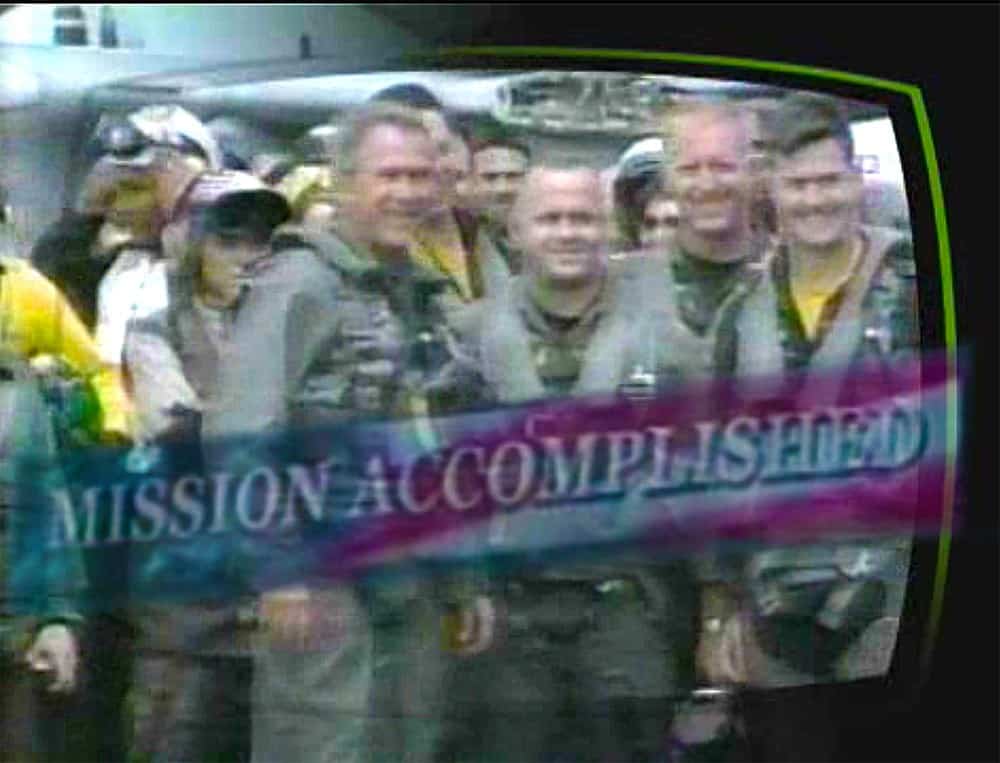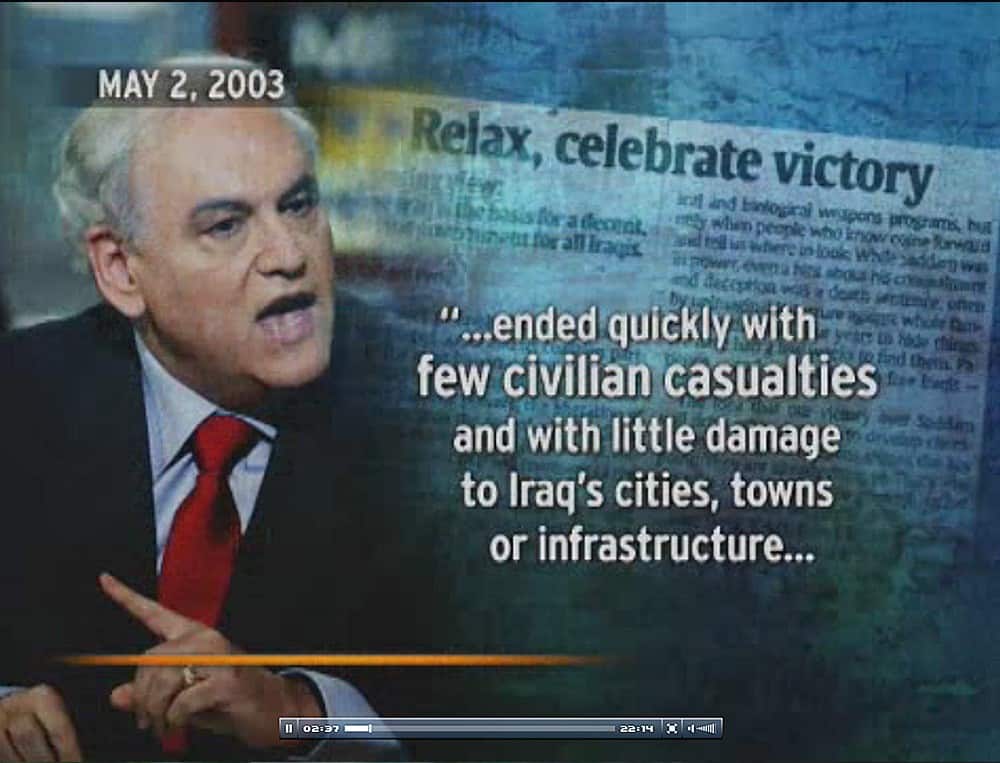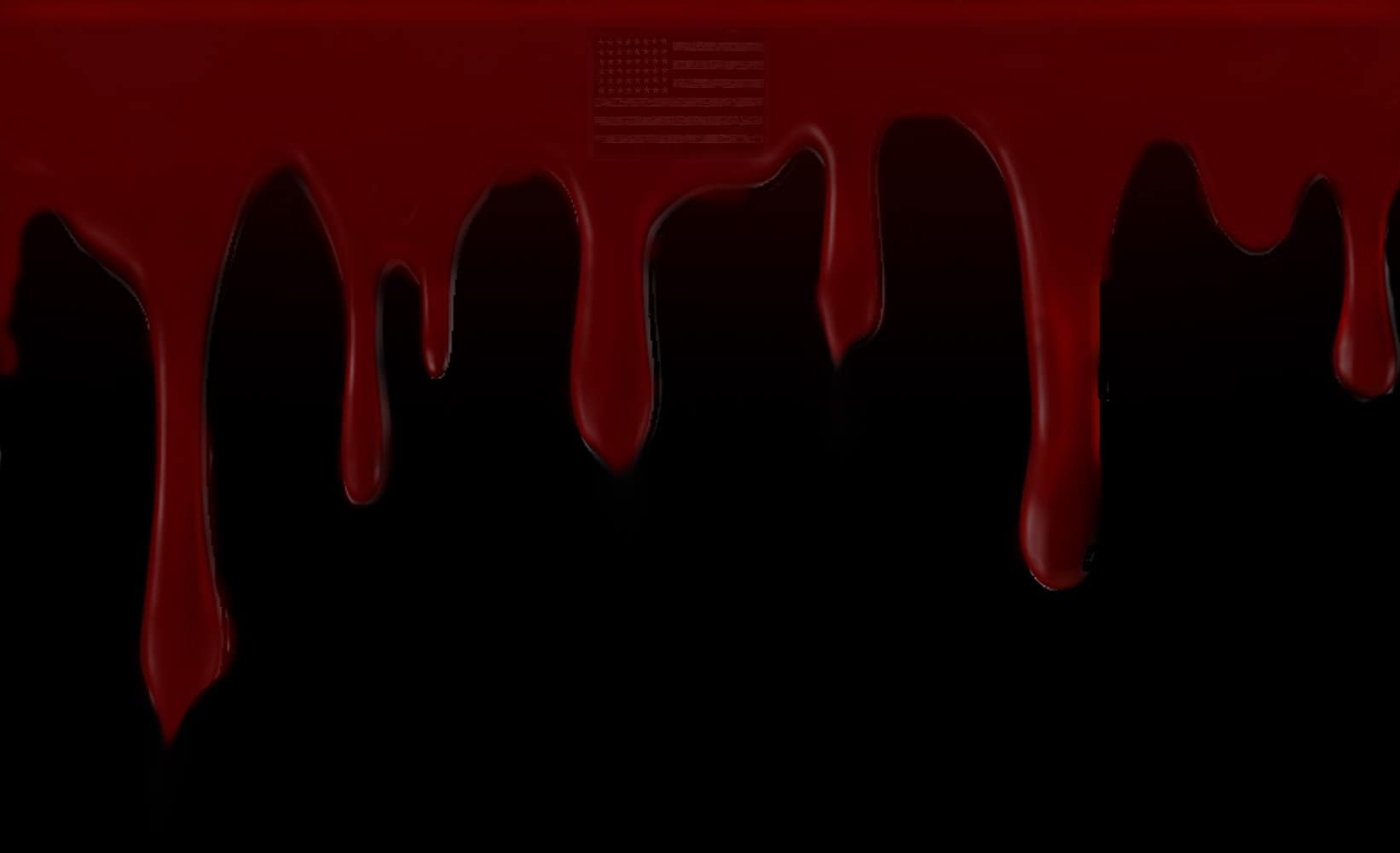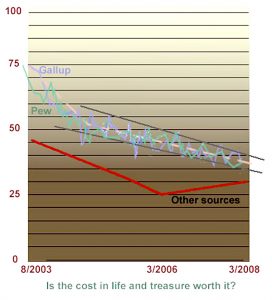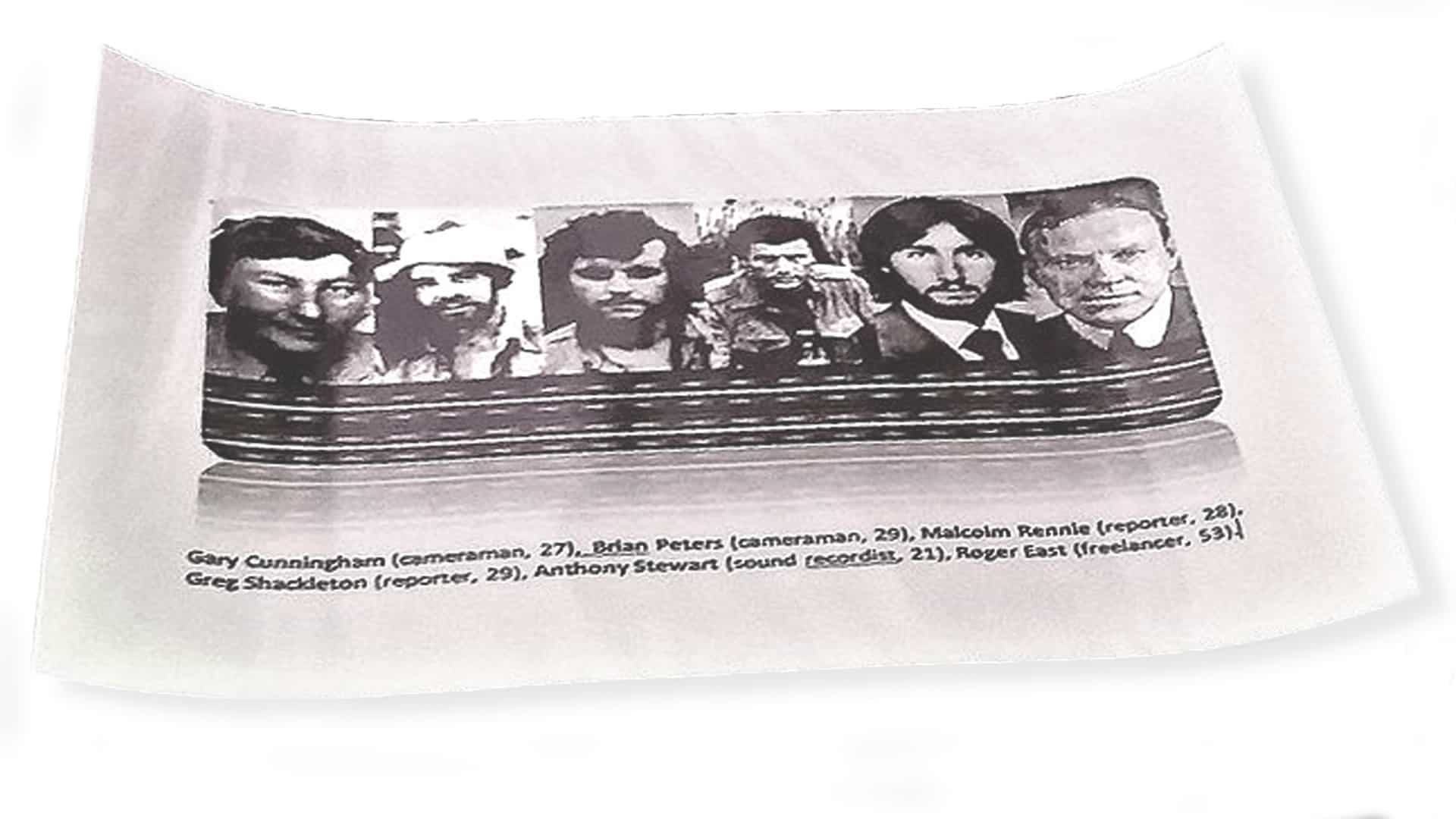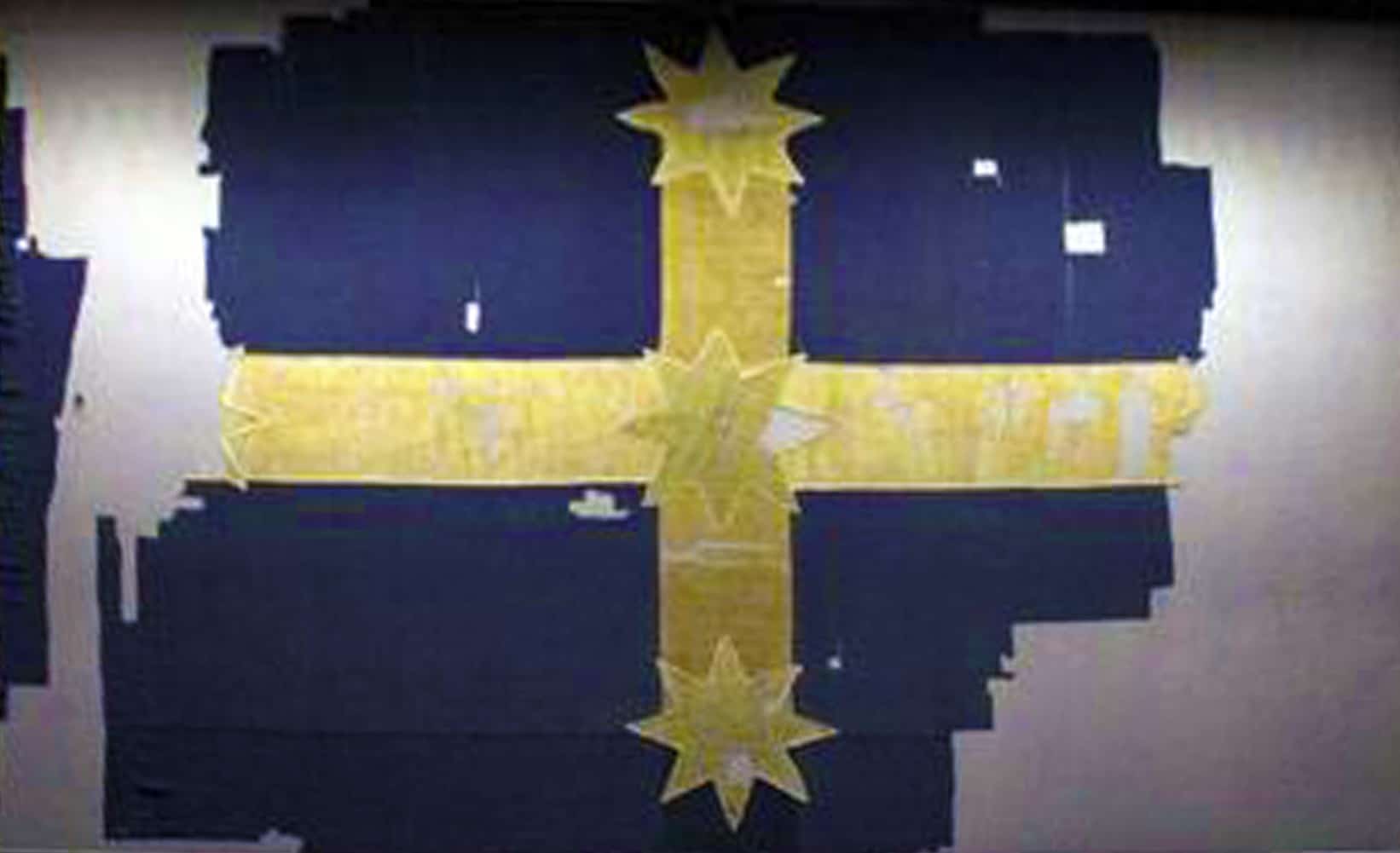Expertology
Expertology
How the Experts Won the Iraq War in Weeks Rather Than Years
The newest Bill Moyers Journal episode includes an interview with Victor Navasky and Christopher Cerf, whose new book MISSION ACCOMPLISHED! OR HOW WE WON THE WAR IN IRAQ looks back at what the experts told us would happen in Iraq. It’s quite funny except it’s all true.
You can watch it here:
What the experts said:
DONALD RUMSFELD:
“It could last, you know, six days, six weeks. I doubt six months.”
CHENEY:
”I think it’ll go relatively quickly…weeks rather than months.”
PAUL WOLFOWITZ:
“We can say with reasonable confidence that the notion of hundreds of thousands of American troops is way off the mark…We are dealing with a country that can really finance its own reconstruction and relatively soon.WILLIAM KRISTOL: “The first two battles of this new era are now over. The battles of Afghanistan and Iraq have been won decisively and honorably.”
RICHARD PERLE: The war, “…ended quickly with few civilian casualties and with little damage to Iraq’s cities, towns or infrastructure…it ended… without the quagmire [the war’s critics] predicted…relax and enjoy it.”
MONA CHARON: “the man who slept through many classes at Yale and partied the nights away stands revealed as a profound and great leader who will reshape the world for the better. The United States is lucky once again.”
CHARLES KRAUTHAMMER: “The only people who think this wasn’t a victory are Upper West Side liberals and a few people here in Washington.”
WILLIAM KRISTOL:”I think there’s been a certain amount of frankly.. pop sociology in America…that…the Shia can’t get along with the Sunni and the Shia in Iraq just want to establish some kind of Islamic fundamentalist regime. There’s almost no evidence of that at all. Iraq’s always been very secular.”
Here’s an excerpt from the interview with Navasky and Cerf:
VICTOR NAVASKY: Well, at every stage, there was someone who proclaimed that it was over. And– when this book came out, we were told isn’t it a shame that it’s coming out now, because the country has reached a turning point with the surge. And based on our research at the Institute of Expertology … we were sympathetic to the point of view that we’ve reached a turning point. Because, as we show in the book, in 2003, we were told by the President of the United States that we’ve reached a turning point. And then, in 2004, we were told we had reached a turning point.
And then, in 2005, we were told by Donald Rumsfeld we have reached a turning point. And then– So every year, three or four times, we seem to have reached a turning point. So that’s one of the ways that we have triumphed.
BILL MOYERS: So how do you decide who is an expert? What makes an expert?
CHRISTOPHER CERF: Well, I think if you are in the government – this is one of the problems we have in the country – you are, by definition, an expert. In fact, you’re unpatriotic if you disagree with someone in the government. And your expertise, if you had any before, becomes suspect.
BILL MOYERS: But these experts also included scholars, pundits, columnists.
VICTOR NAVASKY: People are believed to be experts who proclaim their expertise. Some of them do it directly. Others do it by using jargon, by parading the number of articles they’ve published, by their titles, and by their uniforms. And then, people who have positions of status and power, whether in the press, who are supposed to be adversaries of the establishment. Or, you know, the heads of departments – great departments of government – are assumed to know what they’re talking about. So anyone who is presumed to know what he is talking about, we, at the Institute of Expertology are ready to say, as an expert, but you have to trust us – they don’t.
But who are their favourite “experts”?
VICTOR NAVASKY: I have a favorite expert and a friend. And Chris, I’m sure, has his. But my favorite quote – he’s my favorite expert. But it’s a quote by Paul Wolfowitz, who, you know, came from the academic community, and then had this very important career in the Defense Department, et cetera.
And he says, at one point, “I think foreigners should stop interfering in the internal affairs of Iraq.”


